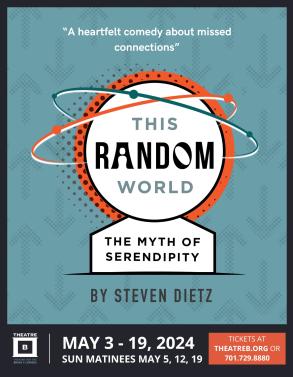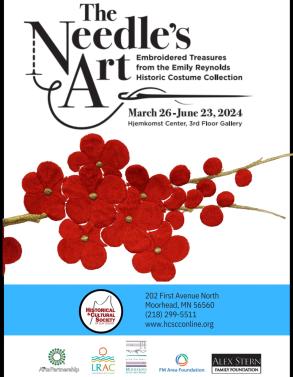Culture | October 16th, 2021
By Michael M. Miller
michael.miller@ndsu.edu
Germans from Russia Heritage Collection, NDSU Libraries, Fargo, ND
Debra Marquart, a native of Napoleon, ND, has authored a delightful new book, “The Night We Landed on the Moon: Essays Between Exile & Belonging”, recently published by the NDSU Press.
From the book flap: “Debra Marquart was born into a family of land-loving people – farmers known as the ethnic group Germans from Russia – who had emigrated from Russia to the United States between 1886 and 1911 and taken up land claims in Dakota Territory. Her grandparents tended their farms and fields, never dreaming of moving another inch away from the homes they had made. By contrast, Marquart grew up a restless, imaginative child in that same agricultural place, yearning to strike out for places more interesting as soon as she was old enough to take flight.
All seemed simple enough until Marquart realized that her family’s stubborn attachment to place grew out of a traumatic multi-generational history of flight, migration, dispossession, and exile from their previous homelands in Europe. Her grandfathers and all her great-grandparents had emigrated to the United States from villages in south Russia, along the Black Sea. And, in a familial pattern going back several more generations, their own great-grandparents had experienced a traumatic uprooting one hundred years earlier when they fled the Rhine region of western Europe on the run from the chaos of the French Revolution. Her more distant relatives had migrated east along the Danube in 1803 to reach their land claims in south Russia, just as more immediate ancestors had fled their villages in south Russia to come west to America.
As Marquart researched her family history, the revelation about multi-generational patterns of forcible removal from homelands helped her to contextualize her own complicated relationship with ideas of exile and belonging. Debra realized she came by her restlessness honestly, an American kid weaned on wanderlust and the promise of education calling her to leave home and never return.
In “The Night We Landed on the Moon”, Marquart works out the tensions between divergent impulses – the restlessness in the feet to always move forward into the world, mixed with the opposing desire to turn around, look back, and sometimes even settle in and claim to belong.”
Marquart’s essay, “Odessa!”, shares her challenging trek to visit Odessa, Ukraine, and her ancestral Black Sea German villages, combining both the ideas of “home” and what home is, stepping back into the unknown.
In another essay, “The Taste of Home”, Marquart describes North Dakota chokecherry jelly and German-Russian cooking. She writes, “Summer and winter at home in Napoleon, the largely German-Russian town where I grew up, there were always dumplings (potato and onions frying under steaming pillows of dough; don’t open the cover or they’ll all collapse), and halupsy (a mixture of ground beef with tomatoes rolled in beds of cabbage leaves), and kuchen (a doughy crust with sweet custard filling and a tart topping surprise of prunes), the taste of home is confusing like this. Take plachinda – pie crust rolled into circles to make small finger-cinched half-moon pockets with a pumpkin filling seasoned with nutmeg, cinnamon, sometimes cloves, plus minced onion, sugar, salt, and pepper. Sweet, salty, and savory!”
Another of the Marquart essays, “Mrs. Schumacher Busts a Nut”, tells the wonderful story of Mrs. Schumacher, Randy Horner, and Saint Philip Neri Catholic Church and Elementary School in Napoleon, ND. The “Refusing Nostalgia” essay details Marquart’s quest to learn of her Grandma Geist’s life in Russia.
Other authors have praised her insightfulness and ability to describe life as a Germans from Russia descendant.
Ander Monson, author of “I Will Take the Answer: Essays”, comments, “These essays rule. They’re about everything North Dakota, obviously, and time and grief and sex and loss and weather, but also subtler wonders: chokecherry jelly, knoephla, proper road trip snacks including Dot’s Homemade Pretzels, the indestructibility of mothers, and the importance and fragility of shade trees. Perhaps her best trick is to get us to fall in love again with the place we’ve left, even if we’ve not ever left them fully.”
Sheryl St. German, author of “Fifty Miles”, writes, “Whether her stories are set in North Dakota or farther afield, and whether she’s talking about the loss of wildness, the feeling of exile, or some other personal loss, we know a wink of humor will arise at some point in her voice, and that we, like the king in Scheherazade’s tales, will want to hear another tale in the morning.”
K. L. Cook, author of “Marrying Kind and The Art of Disobedience”, writes, “Fans of Debra Marquart’s landmark memoir, “The Horizontal World”, will rejoice over the publication of “The Night We Landed on the Moon”. These are shapeshifting essays that travel from the blizzardy Midwest to sweltering Siberia, from a flooding Michigan basement to the panic-inducing Paris Catacombs, from her life as a rebellious farmer’s daughter to hard rock musician to professor and poet laureate. Every page is full of story and insight, laced with wit, as Marquart meditates on the hungers of home and wanderlust, the way her Germans from Russia family is ‘preserved in their hyphenations,’ the poetic strangeness of basketball, the insidiousness of fracking boomtowns, and the ironies of a nostalgia called heimat. The individual essays are astonishing, the collection as a whole profound.”
Debra Marquart is a Distinguished Professor of Liberal Arts and Sciences at Iowa State University and Iowa’s Poet Laureate. A memoirist, poet, and performing musician, Marquart is author of six books including an environmental memoir of place, “The Horizontal World: Growing Up in the Middle of Nowhere”, and a collection of poems, “Small Buried things: Poems”. She was named a 2021 Poet Laureate Fellow by the Academy of American Poets. Marquart appeared in Prairie Public’s award-winning documentaries, “It’s All Earth and Sky” and “Homesteading”.
__________________________
For more information about the 24th Journey to the Homeland Tour to Germany and Ukraine, donating family histories and photographs, or how to financially support the GRHC, contact Michael M. Miller, NDSU Libraries, Dept. 2080, PO Box 6050, Fargo, ND 58108-6050, (Tel: 701-231-8416); michael.miller@ndsu.edu; or go to library.ndsu.edu/grhc.
April 18th 2024
April 18th 2024
March 21st 2024
March 21st 2024
March 21st 2024
__293px-wide.jpg)




__293px-wide.jpg)